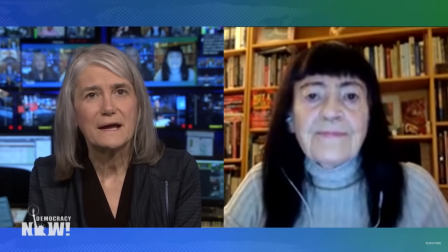A Reluctant Warrior? An Examination of Gen. Colin Powell's Bloody Legacy from Iraq to Latin America
This clip is from the Oct. 19, 2021 broadcast.
"Democracy Now!" looks at the life and legacy of Colin Powell, who is best known for giving false testimony to the U.N. Security Council in 2003 about nonexistent weapons of mass destruction in Iraq, paving the way for the U.S. invasion and occupation that would kill over 1 million Iraqis. Powell, who was the first Black secretary of state, the first Black and youngest chair of the Joint Chiefs of Staff and the first Black national security adviser, died on Monday due to blood cancer and Parkinson's disease that left him vulnerable to infection from COVID-19. Tributes poured in from top U.S. leaders in both Republican and Democratic circles on Monday, but in other parts of the world Powell is remembered very differently.
"Democracy Now!" speaks with journalist and author Roberto Lovato, and Clarence Lusane, activist, journalist and political science professor at Howard University. Lusane describes Powell as "a complicated political figure who leaves a complicated legacy" whose public image was "in conflict with many of the policies of the party he supported and the administration in which he was involved." Assessing Powell's role in U.S. invasions around the world, from Vietnam to Central America, Lovato says "he's made a career out of being a good soldier and supporting U.S. mass murder around the world, but evading the credit for it."











